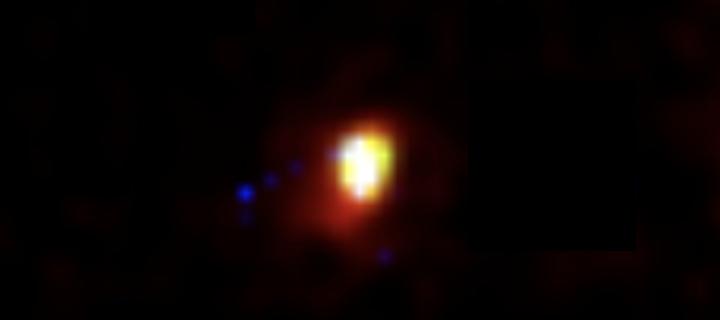A distant galaxy thirty-five billion light years away has been discovered but how is that possible if the universe is 13.5 or 14.2 billion years old?
link
It looks like the OP's question has been answered. Meanwhile....
HERE is the actual paper, not the news release. Note this first came out in November. Also note that:
"We used the photometric redshift (photo-z) code EAZY (Brammer et al. 2008) for our redshift determination for every object in the COSMOS and JWST catalogues."
I don't know if this "most distant galaxy" claim has held up -- maybe it has -- but everyone should know that the early James Webb findings -- especially determining redshift through
photometric means -- are possibly flawed due to the
dustiness surrounding these most distant objects, which causes them to appear redder (and hence further) than they actually are.
Nevertheless, this finding could very well be accurate, and the OP's confusion demonstrates why astronomers use
redshift distance rather than saying something is so many billion lightyears away. The paper states the galaxy has a redshift of z=16.4. That's how many times the light has been "stretched" due to universal expansion. That is WAY out there! The problem is, the number of billion lightyears that corresponds to z=16.4 DEPENDS on the cosmological parameters being used. That is, it depends on (1) the estimate of what portion of the Universe is made up of MASS (including dark matter), (2) what portion is made up of the dark energy in the vacuum, and (3) exactly what the Hubble constant is. And this all is based on the observed determination that the topology of the Universe is nearly, if not exactly, flat. The exact value of the Hubble constant (not actually a constant) is currently "in tension," so a value of 69 km/sec/Mpc might actually be closer to 72.
Anyway, as suggested in the article, the light from an object at z=16.4 is coming from a time when the Universe was only 240 million years old, and it's comoving radial distance is 34.7 billion lightyears. Here is Ned Wright's
Cosmology Calculator where you can change the cosmological parameters and see how that changes the apparent co-moving distance to an object.


